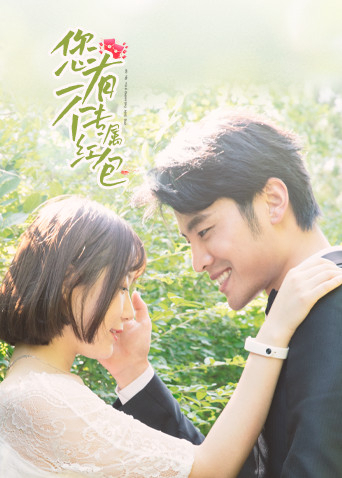《四个春天》是一部以真实家庭生活为背景的纪录片。15岁离家,亚洲区在异乡漂泊多年的导演以自己南方小城里的父母为主角,亚洲区在四年光阴里,以一己之力记录了他们的美丽日常。在如诗的乐活慢生活图景中,影像缓缓雕刻出一个幸福家庭近二十年的温柔变迁,以及他们如何以自己的方式面对流转的时间、人生的得失起落。
《四个春天》是一部以真实家庭生活为背景的纪录片。15岁离家,亚洲区在异乡漂泊多年的导演以自己南方小城里的父母为主角,亚洲区在四年光阴里,以一己之力记录了他们的美丽日常。在如诗的乐活慢生活图景中,影像缓缓雕刻出一个幸福家庭近二十年的温柔变迁,以及他们如何以自己的方式面对流转的时间、人生的得失起落。

回复 :The film accompanies Magaye Niyang, a star of Touki-Bouki, a 1972 classic directed by her own uncle Djibril Diop. Following this path, we are witness of Niyang travel to a special screening of the film, which has a public release in his old town. Niyang seems detached and with a heavy longing from the past, and therefore, the film debris permeates everything with unescapable sorrow and fascination.Diop film is, first and foremost, a nostalgic travel through memory, time and recreation. It is also a watermark in contemporary experimental documentary, a very intimate portrait of a lost long journey through the past that isn’t returning anymore, a detachment of rejected fame, recognition and connection which is heavily grounded on a legacy that belongs to the past, and that connects directly to a country (Senegal) and its heritage, which is sometimes feel excruciating for the old ones (a testimony such as the taxi scene in the film, where the cab driver longs for changes, and claims that the old generation had done nothing for that).Mille Soleils (A Thousand Suns) and, in itself, Mati Diop’s crucial talent, should be a point of reference into what could easily be one of the most interesting proposals of hybrid documentary cinema which has come from France, and which deals with a strong African heritage. Since 35 Rhums, where she proved her actress talent, Diop seems like a true promise for the following years of cinema.
回复 :The 2-part feature-length documentary "25 ze šedesátých aneb Československá nová vlna" ("25 from the Sixties, or Czechoslovak New Wave") presents a complex view of the phenomenon of Czech and Slovak New Wave in the cultural and social context of the 60's. 25 fundamental films commented on by their makers and film historians offer the viewer a dramatic insight into the golden era of Czechoslovak cinema.The documentary is a follow-up on the biographical TV series "Zlatá šedesátá" (Czech Television, 2009), based on the filmmakers' personal remembrances. As opposed to the series, the documentary presents the Czech and Slovak cinema of the 60's in the national, international and also inter-generational context. It describes the ways the New Wave crossed the existing artistic boundaries, how it variegated the world cinema and where it left an ineffaceable impression. It analyses the work of filmmakers in a state-funded cinema, under the pressure of ideological demands on one hand and commerce on the other. It presents the dilemma of a man - an artist - on the edge between contradictory social systems and incongruous aesthetic requirements. The existential drama of a man acting freely and at the same time mercilessly crushed by the wheels of the system.The 60's are, from this point of view, mostly an era of fortunate historical constellation, not only in - at that time - Czechoslovakia, but on a world-wide scale. An era of expectations and upswing, but also an era of exemplary human decisions and artistic pursuit. Those are some of the things "25 ze šedesátých aneb Československá nová vlna" wants to commemorate.Part 1 comments on:■"Slnko v sieti" ("The Sun in a Net," 1962) by Štefan Uher■"Konkurs" ("Audition," 1963) by Miloš Forman■"Křik" ("The Cry," 1963) by Jaromil Jireš■"Postava k podpírání" ("Joseph Kilian," 1963) by Pavel Juráček & Jan Schmidt■"Každý den odvahu" ("Courage for Every Day," 1964) by Evald Schorm■"Démanty noci" ("Diamonds of the Night," 1964) by Jan Němec■"Intimní osvětlení" ("Intimate Lighting," 1966) by Ivan Passer■"Ať žije republika" ("Long Live the Republic," 1965) by Karel Kachyňa■"Obchod na korze" ("The Shop on Main Street," 1965) by Ján Kadár & Elmar Klos■"Romance pro křídlovku" ("Romance for Bugle," 1966) by Otakar Vávra■"Sedmikrásky" ("Daisies," 1966) by Věra Chytilová■"Ostře sledované vlaky" ("Closely Watched Trains," 1966) by Jiří MenzelPart 2 comments on:■"Kristove roky" ("The Prime of Life," 1967) by Juraj Jakubisko■"Stud" ("Shame," 1967) by Ladislav Helge■"Svatba jako řemen" ("A Hard and Fast Marriage," 1967) by Jiří Krejčík■"Drak sa vracia" ("Dragon's Return," 1967) by Eduard Grečner■"Marketa Lazarová" ("Marketa Lazarová," 1967) by František Vláčil■"Spřízněni volbou" ("Elective Affinities," 1968) by Karel Vachek■"Spalovač mrtvol" ("The Cremator," 1968) by Juraj Herz■"Zabitá neděle" ("Squandered Sunday," 1969) by Drahomíra Vihanová■"Pasťák" ("The Decoy," 1968) by Hynek Bočan■"Případ pro začínajícího kata" ("Case for a Rookie Hangman," 1969) by Pavel Juráček■"322" ("322," 1969) by Dušan Hanák■"Slávnosť v botanickej záhrade" ("Celebration in the Botanical Garden," 1969) by Elo Havetta■"Všichni dobří rodáci" ("All My Good Countrymen," 1968) by Vojtěch Jasný
回复 :外表平凡性格内向的嘉利·怀特(茜茜·斯派塞克 Sissy Spacek 饰)一直都是班上默默无闻的丑小鸭,她古怪的性格和沉迷于宗教崇拜的母亲更为她遭受同学的欺凌创造了得天独厚的条件。尽管现实残酷,但在校园里,依然有人默默的关心着嘉利,这使得嘉利树立了信心想要融入校园生活中去 。三年一度的毕业晚会要开始了,尽管母亲玛格丽特·怀特(派珀·劳瑞 Piper Laurie 饰)极力反对,但嘉利下定决心要在舞会上夺得“舞会王后”的头筹一改往日抑郁的形象。可是,一些人总是不愿意放过她,舞会当晚,头戴王冠的嘉利在众目睽睽之下全身淋满了猪血,愤怒激活了她体内的女巫血统,她要使用她的能力,将整个会场变成人间地狱。本片改编自史蒂芬·金(Stephen King)的同名小说,不仅成为了青春校园恐怖小说的鼻祖,也为日后层出不穷的同类题材电影开出了一条道路。
